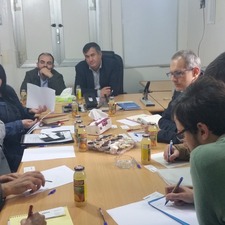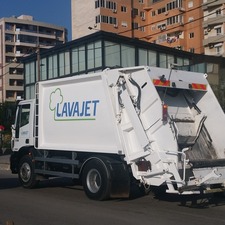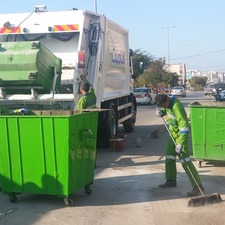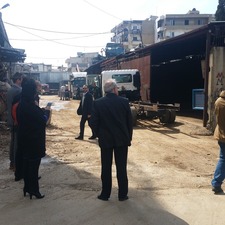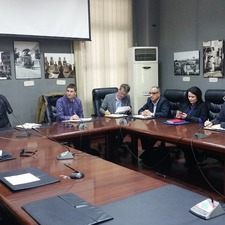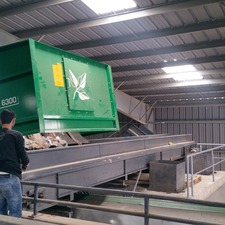Catalan institutions cooperate with Lebanon
| Subject: International Cooperation, International Relations
A mission supporting waste management problems compounded by increased population due to the war in Syria
Between 20 and 24 March, a technical delegation of cooperation and waste management experts from various Catalan institutions visited north Lebanon and Beirut to take part in the design and implementation in the field of the Lebanon Host Communities Support Project (LHSP), which aims to address the urgent need to provide basic services for the population, including waste management.
The LHSP programme has a budget of 730,000 euros, and is funded by the Catalan Development Cooperation Agency (ACCD), the Waste Agency of Catalonia (ARC), the Barcelona City Council, and AMB, with the support of MedCities, through the UNDP-Lebanon and the Lebanese union of municipalities of Al-Fayhaa (Tripoli, El Mina, El Beddawi and Qalamoun). The programme is scheduled to last one year and three months. In addition to the financial contribution, it involves an exchange of knowledge between local and Catalan experts, and follow-up of the measures implemented.
The trip enabled the technical delegation to identify key areas in the programme and perform a diagnosis based on visits to landfill sites, the new treatment plant in Tripoli, waste generation areas and collection circuits, and to have meetings with various local stakeholders (authorities, schools, potential partners, etc.). The Catalan institutions have many years of experience in working in cooperation with Lebanese local authorities, which facilitates the implementation of the programme in the framework of this crisis due to the reception of refugees. The main measures proposed are: the creation of a strategic waste management plan for the municipalities of Al-Fayhaa, enabling a transition from illegal dumping to separate waste treatment; training and awareness-raising in communities; pilot projects in each of the municipalities of Al-Fayhaa, and the purchase of containers, bins and trucks for separate waste collection.
According to the UNHCR, 1.07 million Syrian refugees have arrived in Lebanon since 2016, although the country's government places the figure at 1.5 million Syrian refugees, in addition to the 320,000 Palestinian refugees already in the country. This is a major social and economic impact for a country of four million inhabitants. A study of the environmental impact of Syrian refugees in Lebanon commissioned by the Ministry of the Environment in 2014, with the support of the UNDP and the EU, showed that the increase in solid waste generated by the refugee population was equivalent to 15.7% of the solid waste generated by the citizens of Lebanon before the crisis. This huge increase must be managed by an infrastructure which has limited resources, which makes it virtually impossible to control the increase in illegal dumping of waste, uncontrolled incineration of waste, etc. that affect people's health. This means that this cooperation programme by Catalan institutions to contribute to the resilience and stability of Lebanese municipalities is very important.
Image gallery
Related documents
Related links
Where















































